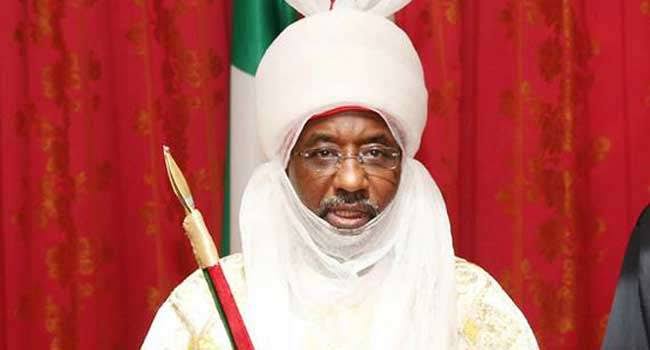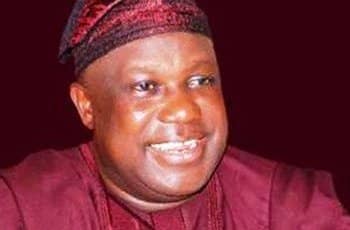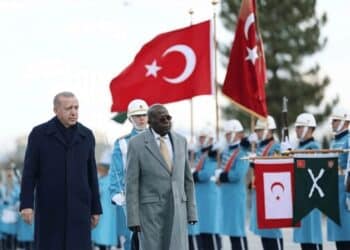The morning copy of the May 19, 1903 edition of the West Gippsland Gazette gave a gripping account of how the then flourishing city of Kano fell to the British. It is a Reuters’ eyewitness account of the February 3 war of the strong over the weak. At the end of that British campaign, over 300 Kano calvary and infantry men fell with their beloved city. ‘The capture of Kano’ is the headline of that report. But that was not the first time Kano had fallen. Almost exactly a century earlier, it was its destiny to fall to the rampaging forces of Jihad launched by Uthman dan Fodio who took out the Hausa ruler of the city and planted his Fulani person there. Then, from 1893 to 1895, the city suffered a bloody civil war over its lucrative throne. The British and its West African Frontier Force later came and ‘pacified’ the city with the massacre of February 1903. That tradition of turmoil continued last week with the capture, once again, of the throne. This time, it was from a coalition of Abuja and Kano forces desperately in need of the city for their sports and politics.
Some people’s image is dyed in the wool of unreliability and betrayal. In several chants and poems, you hear dark metaphors of ‘fair’ snakes appearing in same lines with their nimble stock. But they do it even among themselves – and to their own. Emir Muhammadu Sanusi was dethroned, banished and replaced immediately same day last week with his cousin and brother-in-law, Aminu Ado Bayero. The supplanter’s blood sister is wife to the dethroned. Culture and tradition may be blind to certain moves, but nowhere do they sanction stepping on the blood of brothers to power. Among outsiders, especially the Yoruba, that would be unthinkable; it would be gross betrayal – the ultimate sin. But Sanusi wasn’t the first child to be killed by the Fulani witch — and he won’t be the last. When his grandfather was so treated in 1963, the deposed’s own brother was the eager taker of his throne. When Kano fell to the British in February 1903, the conquerors captured and exiled the emir and then proceeded to replace him with his trusted ally and younger brother who surrendered to the enemy. The new man did not think twice before accepting the offer. He did not think of the hundreds of his brother’s shrieking soldiers killed by the enemy. His gaze was on the throne of blood he was offered by Lord Lugard “for his loyalty.” He took it. The following month, the British took down Sokoto and replaced Sultan Attahiru Ahmadu, again, with his brother who also took the throne as a fulfillment of destiny. There is no record of the brother having any filial feeling for his defeated brother. Lugard said he “publicly shook hands with the new Sultan and wished him long life and prosperity.” The new man mounted the horse and romanced Lugard while his brother, “a princely man, tall, above average, and of noble bearing” fled, roamed the countryside in search of vengeance, later got shot and beheaded fighting the British. Even if you are entitled to be enthroned, why can’t you say no because it is the devil that is making the offer? There has never been a ‘no’ from Fulani princes. They are forever comfortable in the predatory world where fish eats fish to get fat. I wish ambitious southerners who think they are wise and who play dumb politics with these people note this.
But beyond the treachery of Fulani kinship and kingship, don’t you think Sanusi was really tired of being king? A fed-up spouse will do anything to provoke a divorce. He/she will do so especially if there is a sweeter alternative out there. There was a king of England who resigned from the throne because England said no to his marrying the love of his life. Edward VIII ruled England for less than a year, then traded the throne for the luscious bosom of an American lady. Ex-Emir Sanusi would likely have also abdicated the constricting Kano throne if it was not taken from him early enough. He was already talking himself progressively towards that troublous gate and we saw him. He was in love with his tongue and freedom. In his nimbleness, Sanusi consistently publicly exhibited preference for intellect, intelligence and education over the unmoored jail house of the northern Nigeria palace. Now he is an ex-king, a former emir, a deposed, dethroned amir who has said he will “move on” with his life without a fight. Sanusi was tired of the dross of the throne — it showed in his strident denunciation of the perverse ways of his people who cannot handle being told that they are wrong. He perhaps simply wanted a peck-and-go, in and out of that palace initially – just to mark the register and be counted among his blessed ancestors. Then he got stuck and, now, he has been assisted with a clumsy sack. You heard him saying he “will not go to court” although he believed he would “emerge victorious” if he did. A very lucky man, one of the very few in history who ate their imperial cake with passionate relish and are still holding it. He has his name forever on the king list of Kano, and now he is back in the ennobling hall of public intellectualism. Men of transience who fell his unbending tree cannot do anything about that. Now, he is free, taking a look at his shopping list of posts and positions, and is ticking the items one after the other. The emirship is done and dusted; he now says he is “moving on.” To what again? He gave a hint: You could call him an ex-emir “but you can’t say this is an ex-intellectual, ex-educated, ex-intelligent man…”
Kennery highlife singer, composer and guitarist, Orlando Owoh, in a sober moment lamented the fate of the “wise man who died at the backyard of a foolish man.” He said “e get as e be…” That an Abdullahi Ganduje with his garbage of dirty dollars was the one who brought down princely Muhammadu Sanusi (ex-Sanusi Lamido Sanusi) should confound the thoughtful. But then, the unfolding event in Kano is a motion picture; a movie. We have not reached the denouement. A felon was arrested two years ago in Borgu, Niger State for killing his neighbour. He told the police: “I am a Fulani man; I hardly forgive somebody that offends me. I will always remember…” We heard exactly that before very clearly from Governor Nasir el Rufai, the reliable lion heart who heaved Sanusi out of the dungeon last Friday. All the sides in the Kano Game of Thrones are Fulani — none of them knows how to forgive offenders; to them, all debts must be fully paid. If you have ever rescued a trapped, hungry wolf before and it thereafter made to eat you for dinner, you would understand the cast and story of this tragic drama. Sanusi is at once a benefactor, a beneficiary and a victim of the All Progressives Congress in Abuja and Kano. He was very loud in rescuing APC from serial electoral losses. Pre-2015, he forged for the APC goons the teeth with which they have now eaten him. They owe him and his clan, and they will pay one day.
But this dethronement has unintended consequences. I believe Sanusi’s enemies made a mistake freeing him from the clutches of kingship. Now, he is on the loose; a man in a win-win euphoria. Wisdom is knowing that not every tiger can be killed with a pestle. The fact that his grandfather was silenced with dethronement and banishment did not mean the grandson would fall on the same sword without a fight. You wanted to sack a prodigiously global citizen and you did it in a manner worse than the way such was done 200 years ago. Sanusi is savouring the last laugh now. Humiliation must certainly be the lot of the idiocy that sought to backport a 21st century citizen of the world to 18th century life of the yokel. They bungled everything so much that neither Muhammadu Buhari’s Villa nor Ganduje’s Kano had the courage to own the decision to bury alive the ex-emir in the jungle of Nasarawa State. The man proved too large for his enemies’ cage, and he is out. The government of the unwise burnt its lecherous fingers so terribly badly giving the victim earned and unearned epaulets. Now, Sanusi may have unwittingly set free all who may be deposed in the future. Except the future is stupid, Sanusi will be the last Nigerian monarch to be banished and detained after dethronement.
The old boy of King’s College is back in Lagos. In one of his unusual speeches, pre-dethronement, he told his audience: “Lagos has done very well. If I have money to invest, I will invest it in Lagos…We must not let Lagos go..” Who were his ‘we’ who must not let Lagos go? He will answer that question when the time is nigh. But he is now in that Lagos with his money and women, brain and brawn, intrigue and intrepidity. And I have read some people asking why Lagos? Lagos opens its doors to all. Èkó gb’olè, ó gb’òle; Ó gba d’óko d’óko. It is a place of refuge and asylum for exiles, fugitives and their promiscuous siblings. The heart of the Yoruba is large enough for the whole universe to inhabit. And he can outstretch the arms of that heart to the point of suicidal stupidity. When bandits took over the North-West, and Boko Haram ruined the North-East, Lagos (South-West generally) became the place of refuge for the ravaged. Sanusi, their king, has now joined them.
The streets of Mecca are clean, spic and span – but some people make them so. The advantages the South-West and its Lagos have today are products of the choices their leaders made at the beginning. Those who sought to build Abuja to destroy Lagos can now see the futility of their toil. The all-powerful Abdullahi Ganduje did his worst against a northern king and made him to move. The choice of the deplaned was not gold-plated Abuja; it is in Lagos the deposed landed Friday night to stay. He will enjoy his stay and play on that turf. We, however, wait to see how this loud lion of the North will cohabit with the other big cats of Lagos without tension. We may soon see how permanently hosting an (ex)-emir can be a thunderbolt addition to the complexity of Lagos. It is going to be very interesting going forward.











